Declaration in History 05 | Beijing Declaration
background
Article 8 of Chapter III of the Charter of the United Nations in 1945 stipulates that "the United Nations may, without restriction, hold any office under equal conditions between men and women in its principal and auxiliary organs". On December 18, 1972, the United Nations General Assembly adopted Resolution A/RES/3010, which designated 1975 as the International Year of Women. From June 19 to July 2, 1975, the First World Conference on Women was held in Mexico City , which adopted the Mexican Declaration on the Equal Status of Women and Their Contribution to Development and Peace and the Realization of International World Plan of Action for Women's Year Goals. In December 1975, the United Nations General Assembly adopted a resolution to designate the period 1976 to 1985 as the "United Nations Decade for Women: Equality, Development and Peace". From July 14 to 30, 1980, the Second World Conference on Women was held in Copenhagen , during which the signing ceremony of the Convention on the Elimination of All Forms of Discrimination against Women was held. From 15 to 26 July 1985, the Third World Conference on Women was held in Nairobi as a world conference to review and evaluate the achievements of the United Nations Decade for Women, and adopted the Nairobi Forward-looking Strategy for the Advancement of Women.
The Fourth United Nations World Conference on Women was held in Beijing, People's Republic of China from September 4th to 15th, 1995. The theme of the conference was "Action for Equality, Development and Peace". This was another conference held by the United Nations to discuss women's issues after the Nairobi Conference in 1985, and it was also the largest international conference hosted by China at that time. There are about 47,000 participants in this World Women's Conference and NGO Forum, of which about 16,000 people participated in the World Women's Conference in the Asian Games Village and 31,000 people participated in the NGO Forum in Huairou.
On January 28, 1991, the then Minister of Foreign Affairs of the People's Republic of China Qian Qichen sent a letter to the Secretary-General of the United Nations, Javier Perez de Cuellar, inviting relevant parties to hold a World Conference on Women's Issues in Beijing in 1995 . Qian Qichen pointed out in the letter, "Asia is the continent with the largest number of women, and China is the country with the largest number of women in the world, so it is appropriate to hold this conference in China." In the end, the women who closed on March 20, 1992 The 36th session of the Status Committee decided that the conference would be held in Beijing from September 4 to 15, 1995.
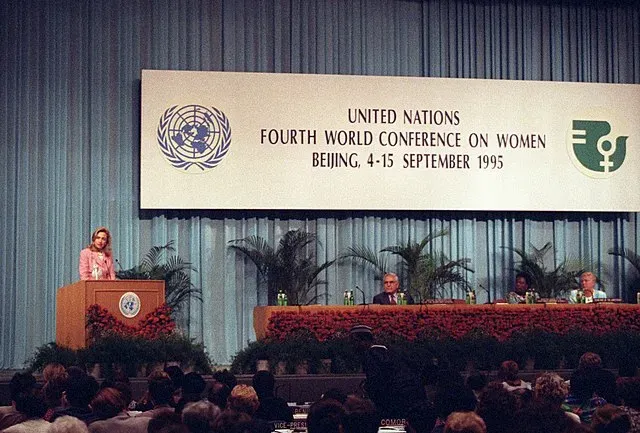
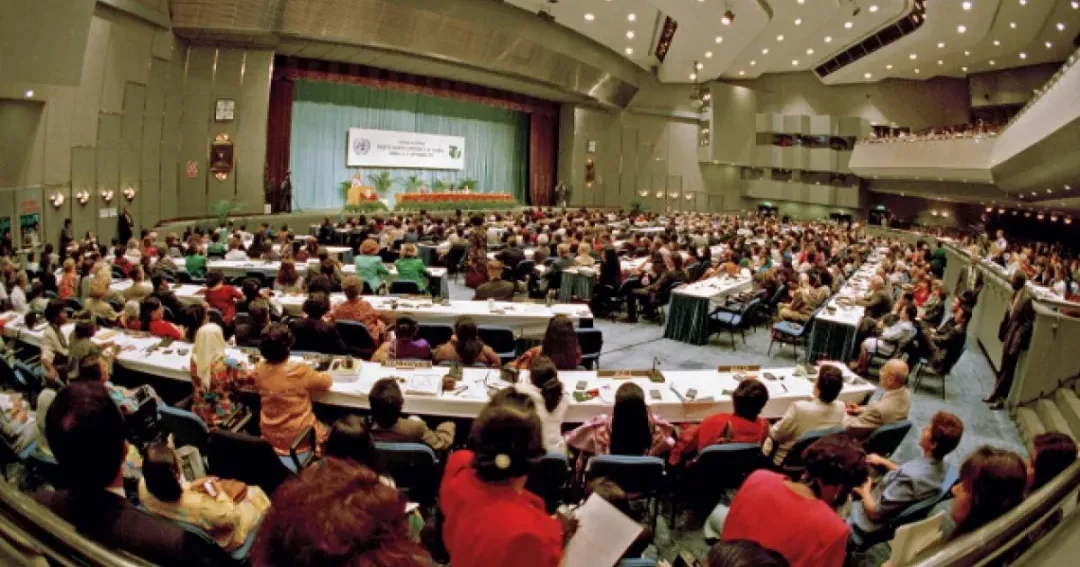
meeting results
On September 15, 1995, the General Assembly adopted the Beijing Declaration and Platform for Action (also translated as the Platform for Action) aimed at empowering women.
Beijing Declaration
The Beijing Declaration, issued on behalf of governments, states that the status of women has improved in some important areas over the past decade, but progress has been uneven, that women and men remain unequal, and significant barriers remain, originating nationally and internationally increasing poverty affecting the lives of the majority of the world's people, especially women and children, and exacerbating this situation, calling upon all parties to overcome these constraints and obstacles in order to further advance the status and empowerment of women around the world , take urgent action. All parties committed to ensuring the full implementation of women's and girls' human rights and the full and effective implementation of the Nairobi Forward-looking Strategy for the Advancement of Women; commitment to the empowerment and advancement of women.
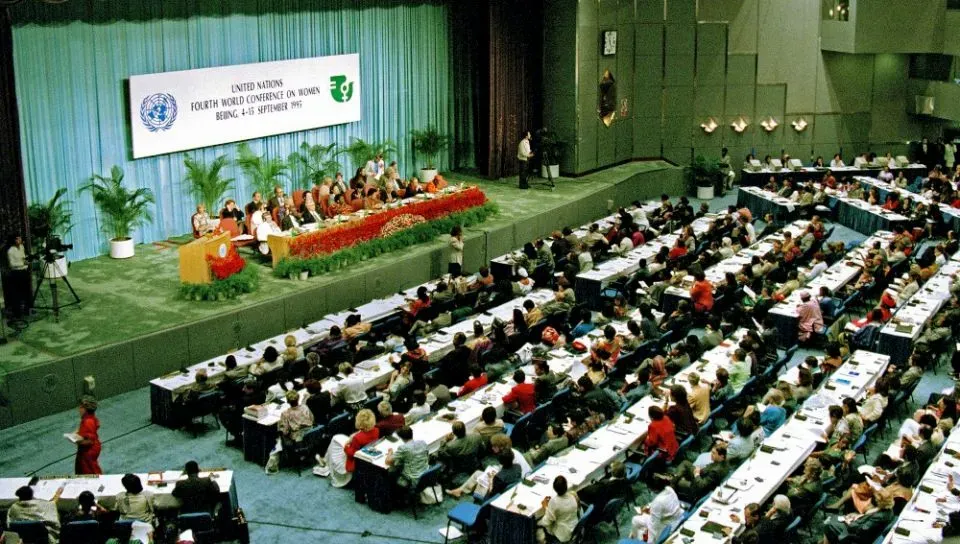
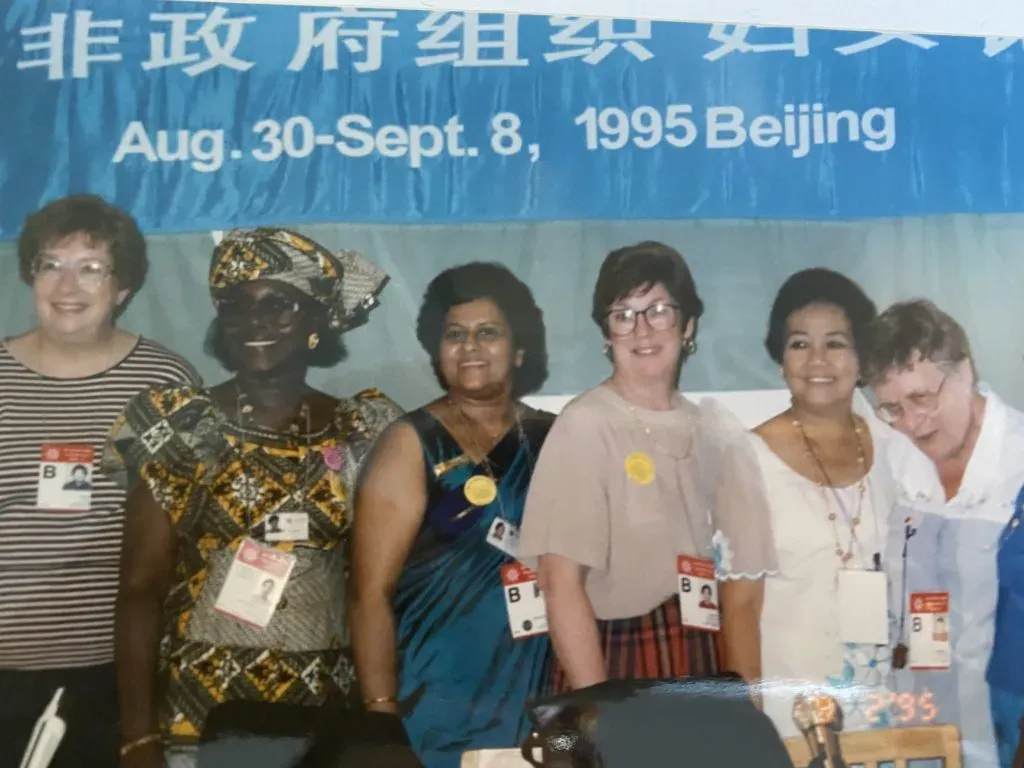
Action Plan
The following 12 areas of concern propose strategic objectives and actions:
- women and poverty
- Women's Education and Training
- Women and Health
- violence against women
- Women and Armed Conflict
- women and the economy
- Women in Power and Resolution
- Mechanisms for the advancement of women
- women's human rights
- Women and the Media
- women and the environment
- girls
In addition, following a controversial issue at the 19th session of the Commission on the Status of Women over the meaning of the term "gender" within the context of the Platform for Action, the Commission formed a contact group which, after considering the above-mentioned issues, reiterated the use of the term "gender" in the Platform for Action The term "gender" shall be interpreted and understood in accordance with its customary and generally accepted usage.
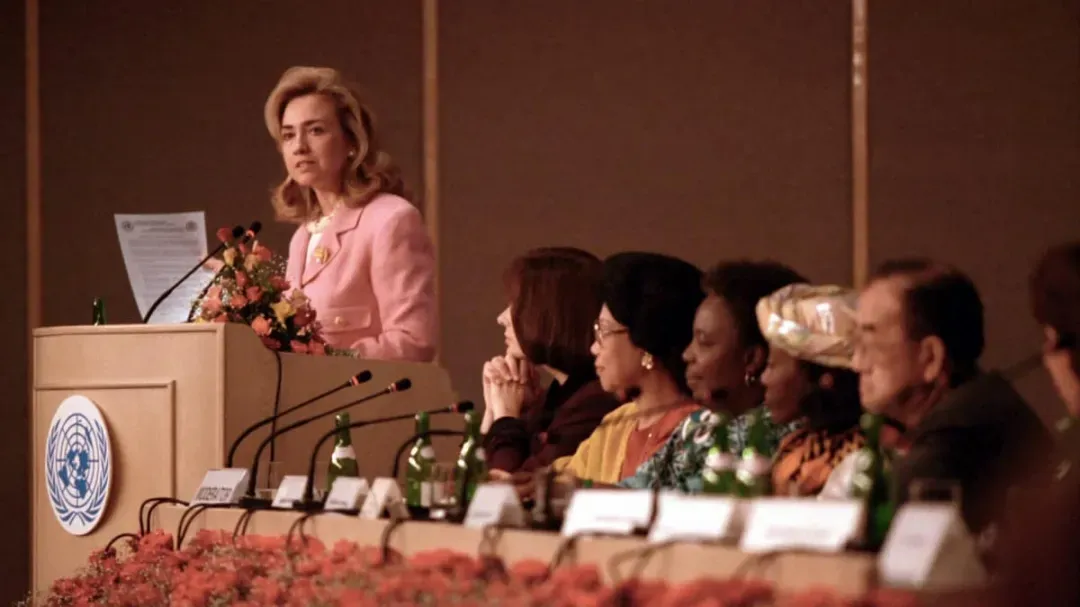
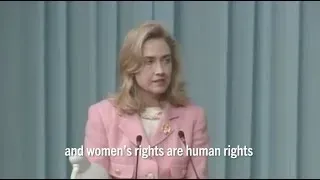
Follow-up development
On August 31, 2005, a meeting to commemorate the tenth anniversary of the Fourth World Conference on Women was concluded in Beijing, and the "Beijing +10 Declaration" was reached and announced.
In March 2020, UN Women released the report "Review of Women's Rights 25 Years After the Beijing Conference", which pointed out that the progress of countries in achieving gender equality was slow and very uneven. On September 4, 2020, UN Women Executive Director Pumzile Mlambo-Nuka noted that 25 years after the meeting, "its importance has not diminished".
The 75th United Nations General Assembly held an online high-level meeting on the 25th anniversary of the Fourth World Conference on Women on October 1, 2020. Chinese President Xi Jinping delivered a video speech at the meeting, proposing to "help women escape the impact of the epidemic. , to implement gender equality, to promote women to be at the forefront of the times, and to strengthen global cooperation in women's causes", and announced China's initiative to hold another global women's summit in 2025.
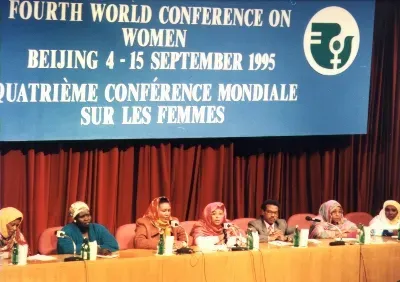
The Beijing Declaration
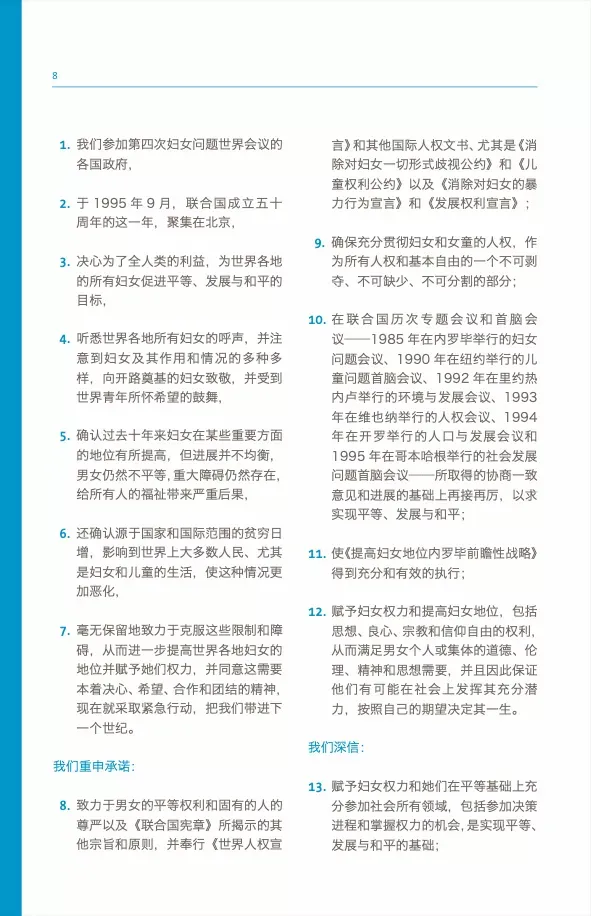
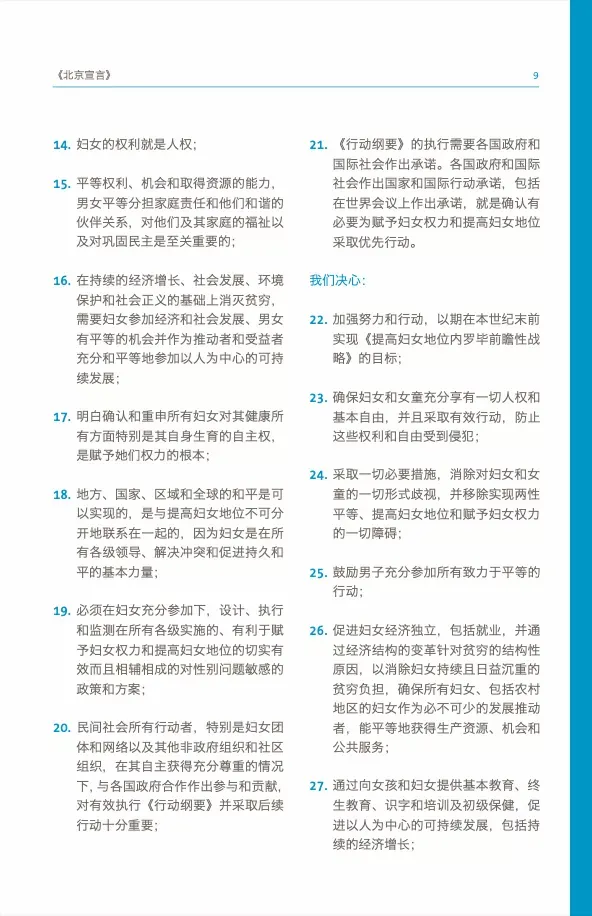
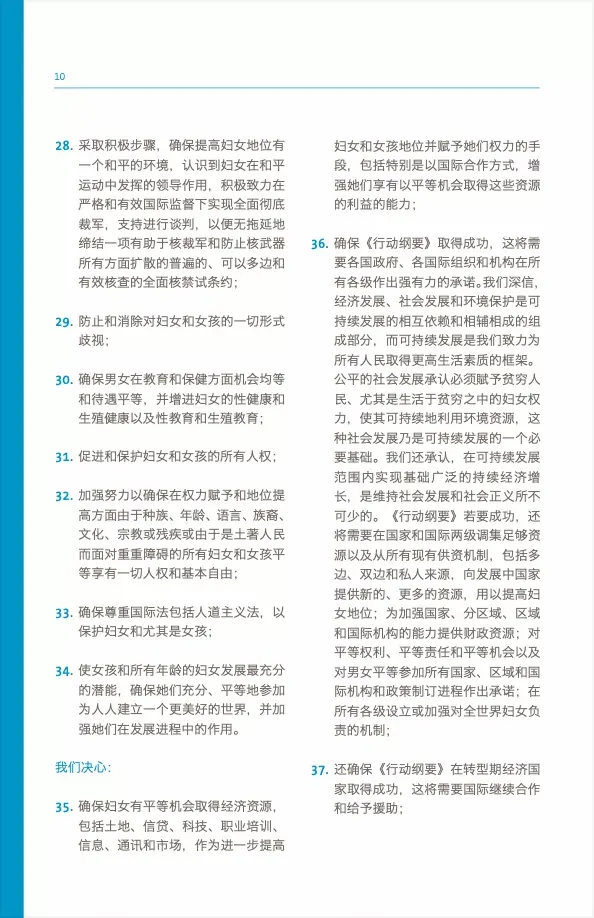
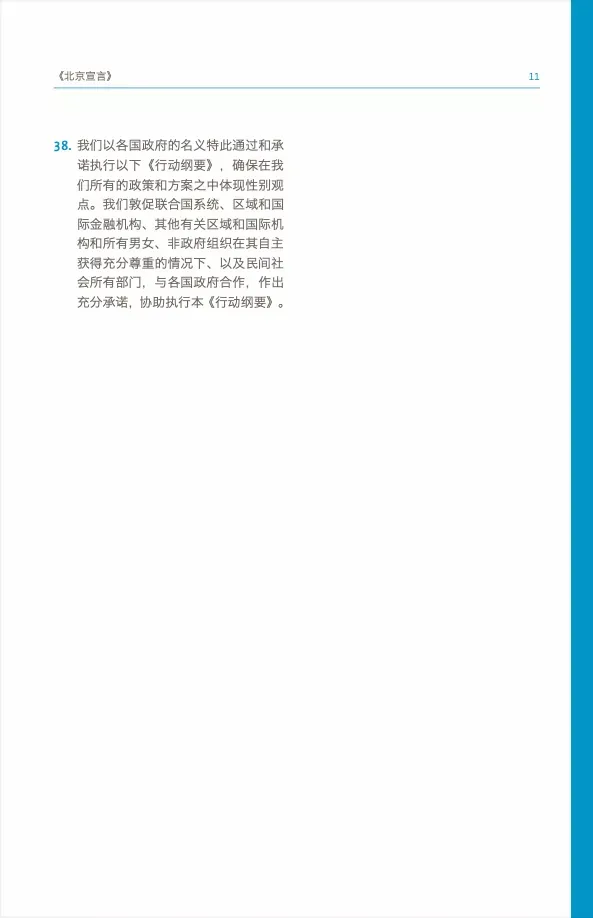
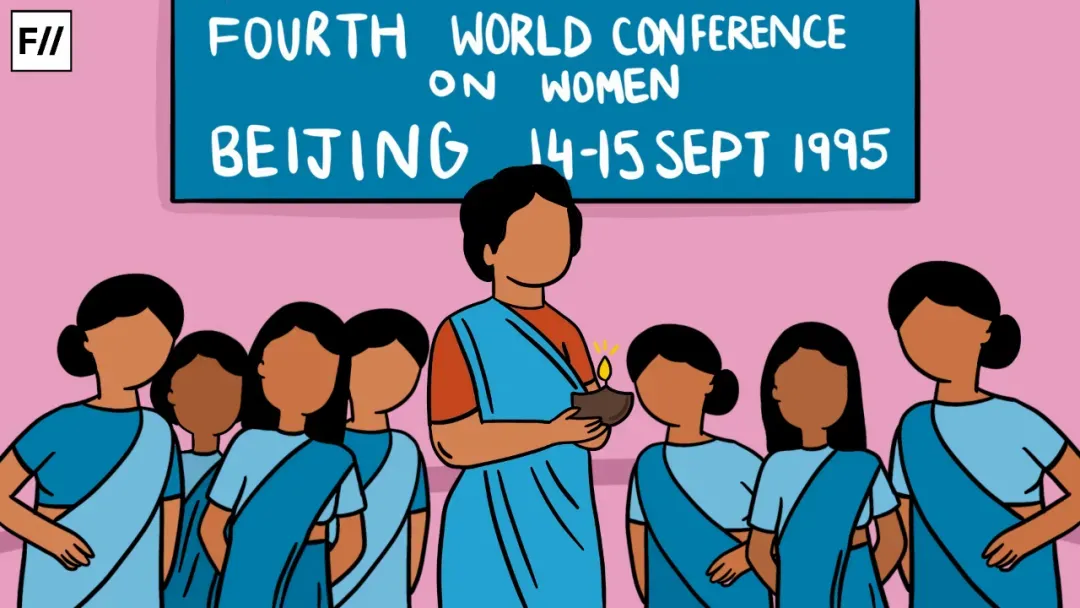
Human rights are women's rights and women's rights are human rights, once and for all.
—Hillary Clinton, Beijing, 1995
Like my work? Don't forget to support and clap, let me know that you are with me on the road of creation. Keep this enthusiasm together!

- Author
- More